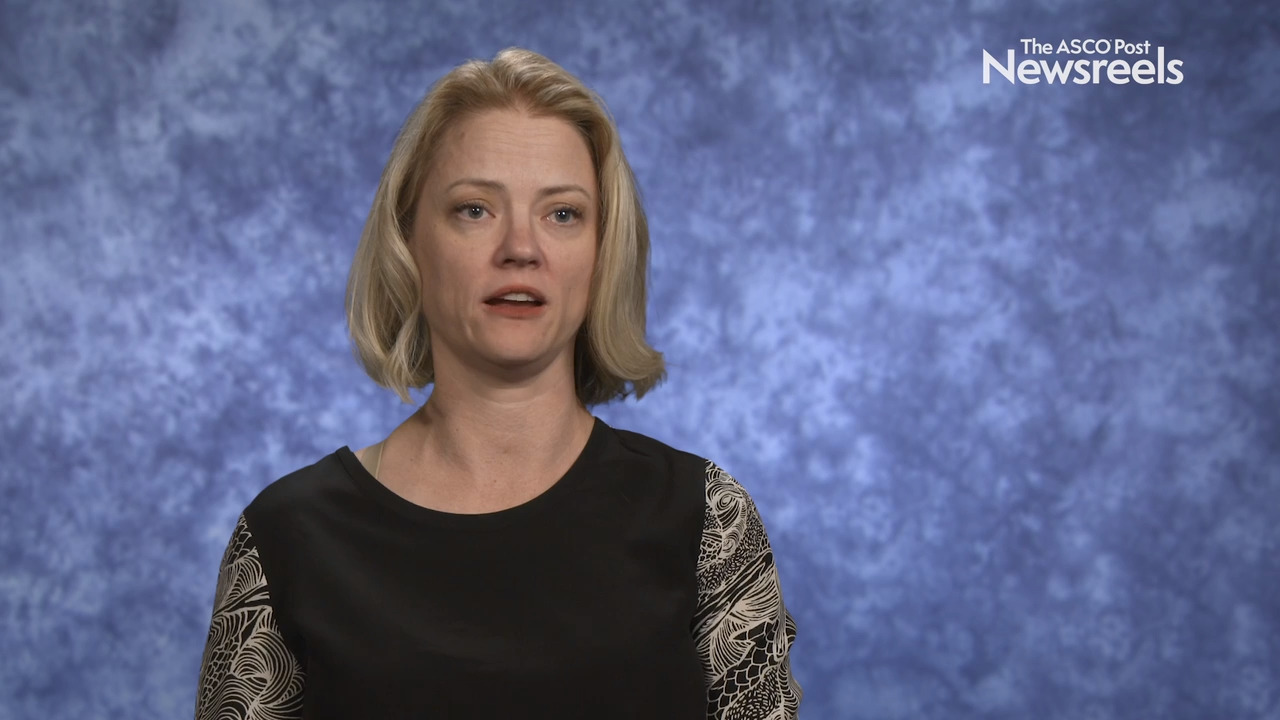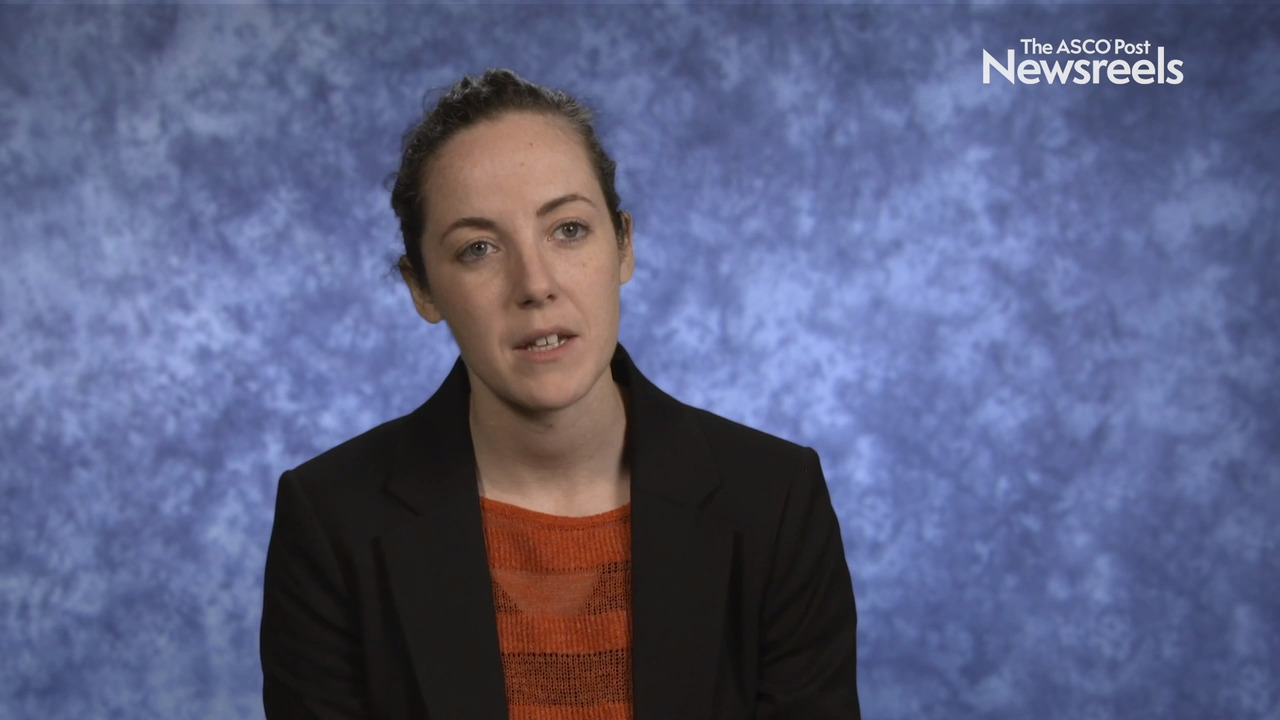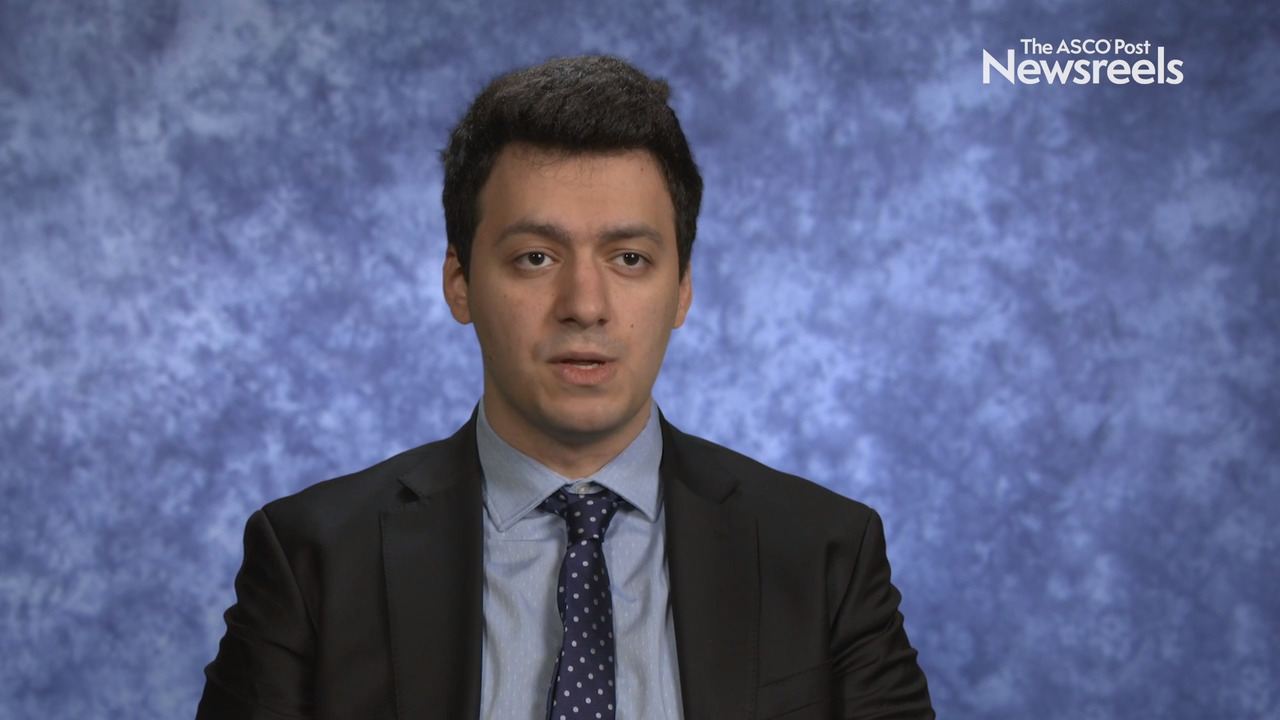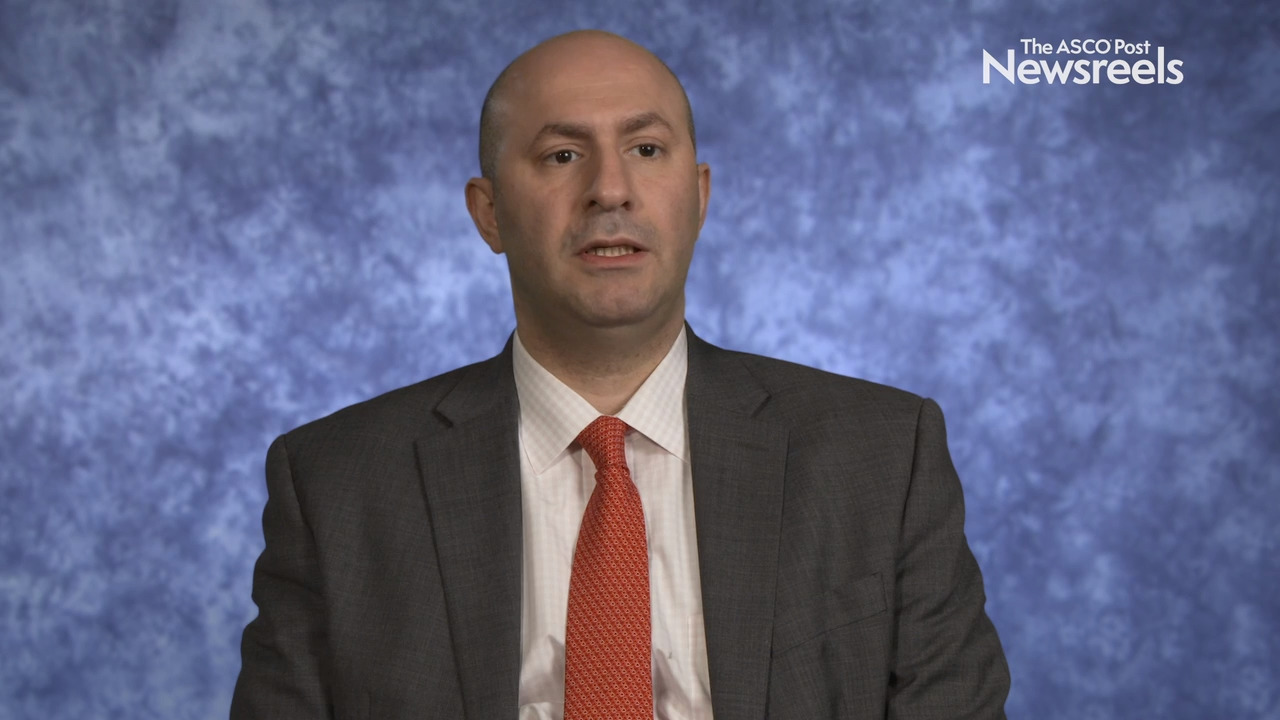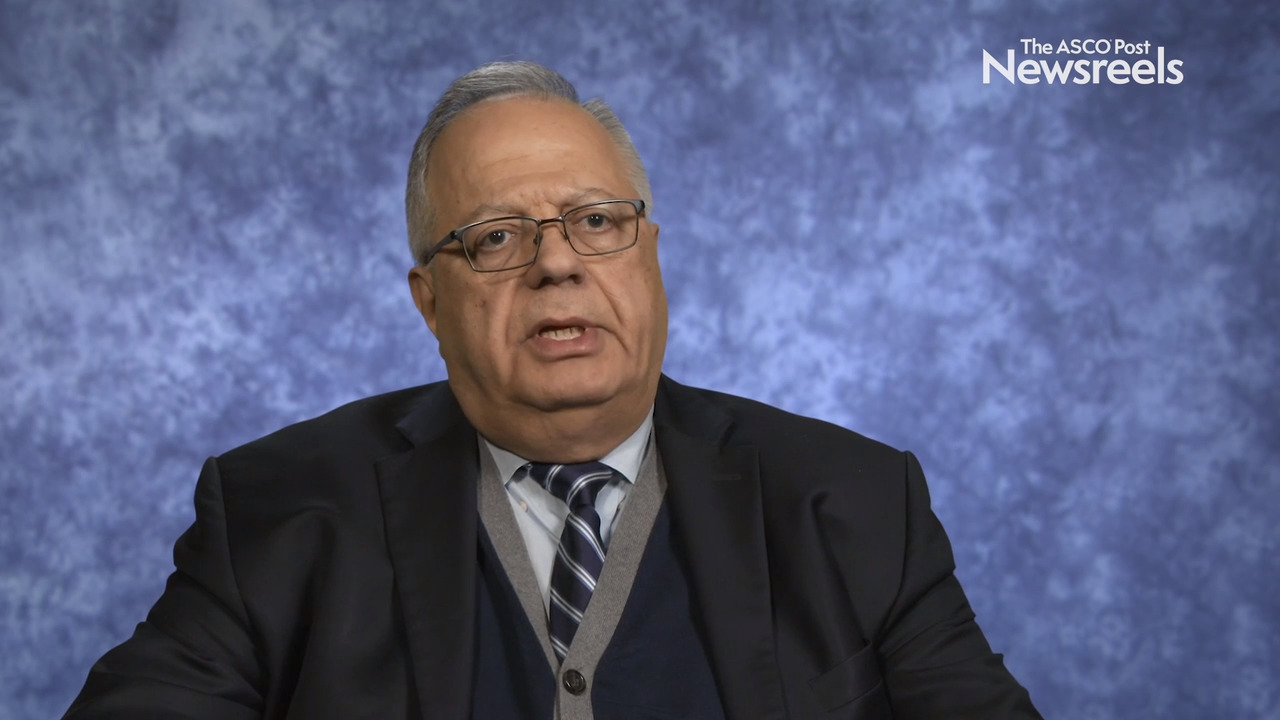David P. Dearnaley, MD, on Prostate Cancer: Conventional vs Hypofractionated High-Dose Radiotherapy
2020 Genitourinary Cancers Symposium
David P. Dearnaley, MD, of The Institute of Cancer Research and Royal Marsden NHS Foundation Trust, discusses 8-year outcomes of the phase III CHHiP trial, which showed that modest hypofractionation is noninferior to conventional fractionation in localized prostate cancer, with no increase in side effects. Disease control was also reported in patients older than age 75 (Abstract 325).
The ASCO Post Staff
Julie N. Graff, MD, of Oregon Health & Science University and Knight Cancer Institute, discusses study findings that show pembrolizumab plus enzalutamide after progression on enzalutamide produced clinical activity and can lead to durable responses, with a manageable safety profile. The phase III KEYNOTE-641 trial will test patients who are enzalutamide-naive (Abstract 15).
The ASCO Post Staff
Hannah L. Rush, MBChB, of the Clinical Trials Unit at University College London, discusses an analysis of the STAMPEDE trial, which showed that patients treated with abiraterone had higher scores in global quality of life as well as in the physical, social, and role function domains and lower scores for pain and fatigue over the first 2 years than those receiving docetaxel (Abstract 14).
The ASCO Post Staff
Ziad Bakouny, MD, of Dana-Farber Cancer Institute, discusses the controversial and ill-defined role of cytoreductive nephrectomy in treating patients with metastatic renal cell carcinoma who have received targeted therapies or immune checkpoint inhibitors (Abstract 608).
The ASCO Post Staff
Toni K. Choueiri, MD, of Dana-Farber Cancer Institute, describes a currently recruiting phase III study (COSMIC-313) of cabozantinib in combination with nivolumab and ipilimumab vs nivolumab/ipilimumab for patients with previously untreated advanced renal cell carcinoma of intermediate or poor risk (Abstract TPS767).
The ASCO Post Staff
Nizar M. Tannir, MD, of The University of Texas MD Anderson Cancer Center, discusses overall survival and an independent review of response in CheckMate 214 with 42-month follow-up, using first-line nivolumab plus ipilimumab vs sunitinib in patients with advanced renal cell carcinoma (Abstract 609).
